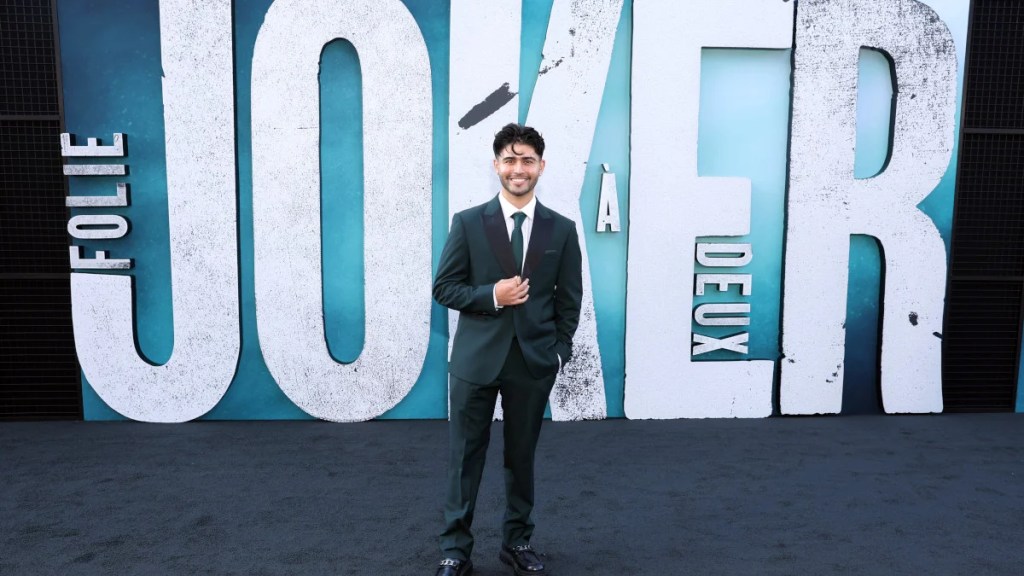Who Needs Critics When You Have Influencers?
On Thursday, Aug. 8, Disney held a special screening of “Alien: Romulus” in Irvine, California at a 4DX theater, where the seats rumble and squirt water at guests. While press from around the world had gathered in nearby Anaheim for D23, the huge, official all-Disney fan convention, only social media influencers were invited to this screening, which had been outfitted to get the most visceral response out of its audience. Disney was looking for oomph. Go-Pro cameras were attached to the backs of theater chairs to capture reactions. At one point a guy wandered into the screening. He complained of chest pains; moments later a rubber alien popped out of his chest. The crowd, right on cue, screamed bloody murder.
But just as important as what happened inside the theater was what happened when the screening was done – an embargo was lifted on the first reactions to the film, which could now be issued not from actual press or critics, but from the influencers who attended that screening. Footage quickly flooded TikTok, especially of the guy who was faking getting eaten from the inside out by a deadly space parasite. And on X, breathless reactions popped up from the content creators in attendance. They had all loved it – every rumbling, water-squirting minute of it. (One, whose caption simply reads “omg omg omg #alienromulus” was liked a half-a-million times and shared over 100,000 times.)
Juju Green aka Straw Hat Goofy, who has 3.5 million followers, was quoted in a sizzle reel produced by Disney, saying that “Alien: Romulus” had “a lot of tense scenes.” An unseen female voice can be heard saying in the sizzle, “It was worth the hype.” And another influencer, on camera, during the sizzle said, “Nothing could have prepared me for this.”
Meanwhile the press screenings for the movie and the film’s splashy Hollywood premiere were scheduled to take place four days after this influencers-only screening, and Disney stated a different embargo for professional critics and journalists.
@itsalljoshok Alien:Romulus reactions in 4DX. Now in Theaters! #alienromulus #alien #reaction #xenomorph #regalcinemas #movie #20thcenturystudios #promo @20th Century Studios ♬ original sound – just josh
The stunt worked. “Alien: Romulus” was originally earmarked for a direct-to-Hulu premiere and its prospects were viewed by box office prognosticators as pretty limited. But after the frenzied response from early audiences like the influencers in Irvine, interest in the sequel increased dramatically. “Alien: Romulus” took in just shy of $350 million worldwide on a budget of just $80 million.
If anything, the success of “Alien: Romulus” reinforced a stance that Hollywood is wholeheartedly embracing – that it’s social media influencers, not critics or journalists, that will make the biggest impact.
A string of recent films like “Borderlands” and “The Crow” have been screened with earlier embargoes for influencers than for critics, ensuring that the first wave of reactions to hit social media will be from a less discerning and historically — if not hysterically — positive crowd.
Studios have for decades been leveraging content from enthusiastic journalists at junkets to create positive buzz for their movies. They not only invite writers for fan sites to interview cast and crew as “journalists,” but solicit blurbs from friendly “critics” for use in advertising. But now that mass media consumption has largely moved to social media, influencers are the audience of choice for studio marketers.
“What’s complicated and hard for everyone is to figure out where influence comes from, and where people are getting information,” one veteran movie marketer who sympathized with the challenge told TheWrap. “Everyone is figuring out how to reach consumers. And every day there’s a new platform. It’s too hard to cut through the noise. There’s no clear path to market to people any more. It’s so noisy and loud and crowded that studios are desperate to get any share of voice. “
Studios have been working with social media stars for at least the past 10 years, according to one studio executive. But the way in which studios treat influencers and their preference for influencer opinion to lead the discussion over more traditional critical analysis has intensified in recent months, with influencers seeing movies and sharing their opinions about those movies much earlier than traditional film journalists and critics.
It’s just the latest blow to the dignity of film criticism. With thoughtful discourse around movies now largely reduced to whether or not something is deemed “fresh” or “rotten” on Rotten Tomatoes, it makes sense that studios would look to social media to try to get butts in seats.
“It’s not out of disrespect to critics,” another veteran marketing executive who is working on major films this season but declined to be identified said. “Influencers are just another word for fans. And if you don’t give the fans ownership and let them own a point of view first, it’s hard to manage your brand. They’re really the gatekeepers… You want to give them a chance to own and advocate something before it goes to critics.”
A Disney insider said that the “Alien: Romulus” screening wasn’t a conscious shift in strategy but rather a seized opportunity at D23. And the early embargo lift was an acknowledgement that they probably couldn’t keep those influencers quiet and saw this influencers-only screening as a way to drum up interest.
Another studio insider said Hollywood movie studios have always had parallel approaches — one track for influencers and one track for critics and journalists. This person contends nothing has changed in that regard.
Embracing the influencers
Around the time that Disney was showing “Alien: Romulus” to influencers, Lionsgate was adding an addendum to screening invites for some of its high-profile summer releases that took critics by surprise.
For “Borderlands,” Lionsgate put in place a system that allowed for critical response only after influencers could share their presumably more positive take. The studio said that “social reactions” could be shared on Aug. 6. However, the “critical social sentiment and critical review” embargo wouldn’t lift until two days later, on Aug. 8, the day before the film’s release. Similar embargoes were in place for the long-awaited remake of “The Crow,” with influencers given the go-ahead to share their thoughts before critics and film journalists.
Whatever Lionsgate was going for, whether it was an attempt to drum up excitement or a preemptive effort to obscure the savage critical response that they knew would greet both movies, it didn’t work. “Borderlands” and “The Crow” were costly disappointments that were also critically pilloried — “Borderlands” grossed just $33 million worldwide on a $110 million budget and sits at 10% on Rotten Tomatoes, while “The Crow” grossed $24 million worldwide and has a 23% score on RT.
Lionsgate did not respond to TheWrap’s request for comment.

But as studios struggle to return to pre-pandemic box office levels, it’s not hard to see why they may want to hold professional reviews on divisive or poor-testing titles until the last minute. “Joker: Folie á Deux” premiered at the Venice Film Festival a month before opening in theaters, and the harshly negative reviews tanked the film’s box office, resulting in a $38 million debut — over $30 million less than pre-release tracking a month prior. The full month of bad buzz had a material impact.
“It’s a terrible thing for criticism and film culture … It’s dumb short-term thinking. But Hollywood is a dumb short-term place.” – New York Magazine film critic Bilge Ebiri
New York Magazine film critic Bilge Ebiri told TheWrap that he had “not really noticed” this phenomenon of flooding social media with influencer reactions before those from actual critics. But he certainly knew of the increasing presence of influencers on the film circuit. He pointed to “that guy on TikTok” who was granted an exclusive interview with Christopher Nolan well ahead of the release of “Oppenheimer” last year.
Ebiri was referring to Reece Feldman, who has parlayed his 2.4 million TikTok followers into a correspondence gig for the Oscar telecast, being invited to the Met Gala and agency representation by Gersh.
“It’s a terrible thing for criticism and film culture,” Ebiri said of studios prioritizing influencers over critics. “Distributors/exhibitors, in some cases filmmakers, in their minds, they want good press. And with influencers, it’s their job to give good press. Influencers aren’t out there to trash peoples’ things. They might have their opinions, but by and large they’re out there to promote. It’s their job. The idea of bypassing critics and going to influencers is, at once, incredibly shady and perfectly understandable.”
An opinion from an influencer has the patina of earnestness, even if it is far more transactional than traditional criticism or journalism. For some, a 20-something screaming into their iPhone about “Twisters” feels more real than reading about the same movie in print or online at a legacy outlet or blog.
Ebiri said he thinks that the practice of leaning on influencers instead of actual journalists is “not going to last.”
“You’re going to wind up completely devaluing whatever promotional value you might get out of this,” Ebiri said. Critics are supposed to be what Ebiri referred to as “honest brokers.” Same with film journalists. They’re supposed to be honest in their opinion and their assessment, something that the reader/viewer/listener can pick up on. “The minute you hand that off to people whose job is to just promote and in some cases not even promote because they like something, but because you’ve paid them or lured them in with free stuff, might get you a momentary benefit,” Ebiri said.
He added: “But in the long run, they’re not going to be seen as trustworthy. And in the process you’re going to destroy the one group seen as trustworthy. It’s dumb short-term thinking. But Hollywood is a dumb short-term place. People are just hanging onto their jobs.”
The influencer’s role

Liam Saul is an influencer and content creator living in Canada. He started being invited to premieres and fan screenings about a year ago, and as his contacts at studios and PR agencies grew, so did his access. Recently he was invited to Los Angeles for the premiere of “Joker: Folie à Deux.”
“Sometimes they’ll give creators opportunities to have sit-down interviews or be able to ask questions on the red carpet,” Saul told TheWrap.
Usually, at the end of a screening, they’ll hand the influencers a bag full of merchandise. This summer, he was given a tequila bottle after a screening of “Blink Twice.”
“It’s always something on par with the movie,” Saul said.

And while, Saul implied, they aren’t forbidden from expressing their dislike of a certain movie, he said he does understand that he is part of the machine that is marketing and opening the film or TV show. When asked how he handled the universally reviled “Joker: Folie à Deux,” he said he chose to ask other people their opinions. He said he felt bad because Warner Bros. flew him out to the premiere and put him up at a hotel.
“I didn’t hate it as much as other people, but I chose not to do a review for that one,” he said. Instead he focused on making content that detailed the experience of attending the premiere.
“I’ll be completely honest of what I thought,” Saul said. “If I really hated a movie, I would not just say it’s amazing because I was invited to the premiere.” He said he’s sure there are people who “get paid” to give positive reviews, but contended that he’s never been asked explicitly to give a positive review. He added that he understands his content is used to “promote the movie, because maybe it is marketing at the end of the day.”
What Saul is paid for, sometimes, is attending a premiere and making content promoting the movie or show that can be shared by the studio. These more formal opportunities are preceded by lengthy documentation, where the preferred hashtag is discussed and the number of stories or Reels that are expected in return is agreed upon, including the language used within the videos to get people to watch the show or movie.
Recently, Saul attended the Toronto International Film Festival, “to see all these different movies and talk about them.” A friend of his – another influencer – went for TikTok. “They put him in a hotel and it was five days of back-to-back movies and coverage and interviews.” The asks from studios and promotional partners can vary, Saul said. Sometimes they’re just happy to have him, other times it’s more explicit that he’s part of the marketing.
Saul said that he really looks up to Reece Feldman, the aforementioned guywithamoviecamera. “I really love what he does,” he said. “I would love to do more interviews. I saw that he was at the Oscars and he was at all of these things. I’d love to work for a news outlet.” Saul said that he went to school for journalism. He’d like to get back to it one day.
When the subject of influencers replacing critics came up, Saul said, “I think it’s just that studios are looking for promotions now.” He said that studios are angling for the next viral sensation, “because that’s how people are showing up to theaters nowadays.” If someone is scrolling Instagram or TikTok and sees a bunch of people talking about, say, “Twisters,” then they’re more likely to buy a ticket.
A brief history of studios’ attempted sway
Studios looking for impressionable entertainment enthusiasts and journalists to distribute positive feedback about their product is nothing new.
Through various tactics – stays at luxurious hotels, access to megawatt movie stars, visits to the set of some upcoming, would-be blockbuster – movie studios have tried to favor (if not outright purchase) the kind of good word-of-mouth that can sway the average moviegoer. When the stature of the critical community started to slip, the studios pivoted to a new breed of cinephile – the geeky, extremely online enthusiasts that would populate message boards and more fan-leaning early websites like Ain’t It Cool News and CHUD. (Famously, Ain’t It Cool News godhead Harry Knowles gave a glowing review to 1998’s “Godzilla” after being courted by the filmmakers. In 2017 several women accused Knowles of sexual misconduct.)
With the ascendancy of the review aggregator Rotten Tomatoes, where the review of a Pulitzer Prize-winning critic has the exact same weight as somebody with a personal Substack account, critics have further found their power diminished.
The influencers of today offer the veneer of authenticity and respectability. They also offer personality. Influencers, who seem genuinely excited to be watching these movies and attending these premieres, allow their review of the movie to be filtered through the online persona that they have painstakingly cultivated.
They also, crucially, feed the current, online generation’s tempo of digestion. It’s much easier to watch a 30-second review of the latest Marvel movie on TikTok than it is to read a 2,000-word essay in the pages of The New Yorker.
This perceived reality and personality, along with the waning power of the critical community, has made influencers and content creators key, heavily-armed soldiers in the fight for audiences’ ever-dwindling attention in an attempt to return the box office to pre-pandemic levels.
Studios lean in
Last week Eli Rallo, who has almost 900,000 followers on TikTok and had a book (“I Didn’t Know I Needed This: The New Rules for Flirting, Feeling and Finding Yourself”) published by Harper Collins earlier this year, posted about having already seen “Wicked,” Universal’s big adaptation of the beloved stage musical. But none of the usual Oscar prognosticators had posted their thoughts.
Rallo posted photos from the screening, which appeared to be at a SoHo House screening room, with the note: “Thank you NBCUniversal for trusting me, for having me and for such a gift.”
But hey, there’s more than one way to get to Oz.
Sharon Waxman and Umberto Gonzalez contributed to this report.







